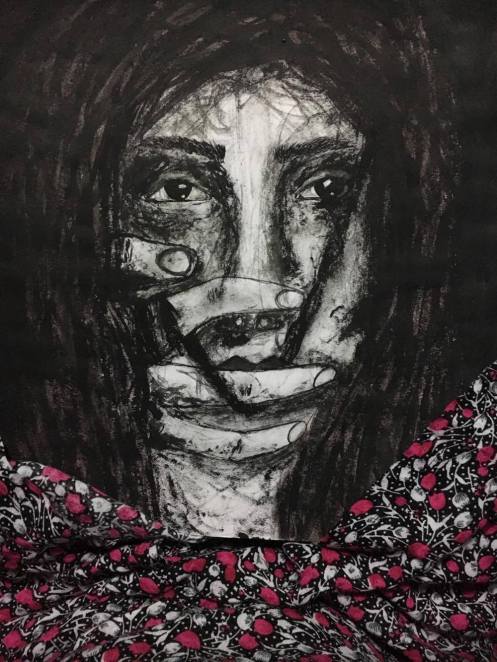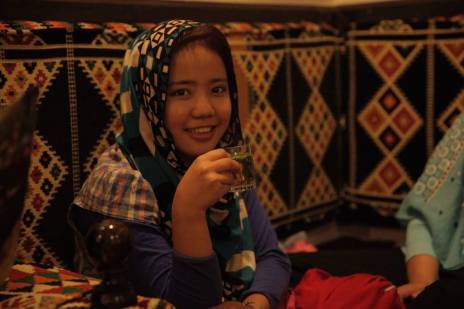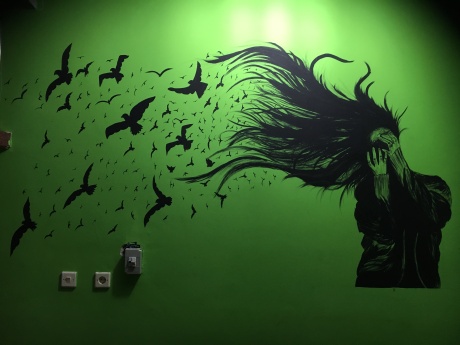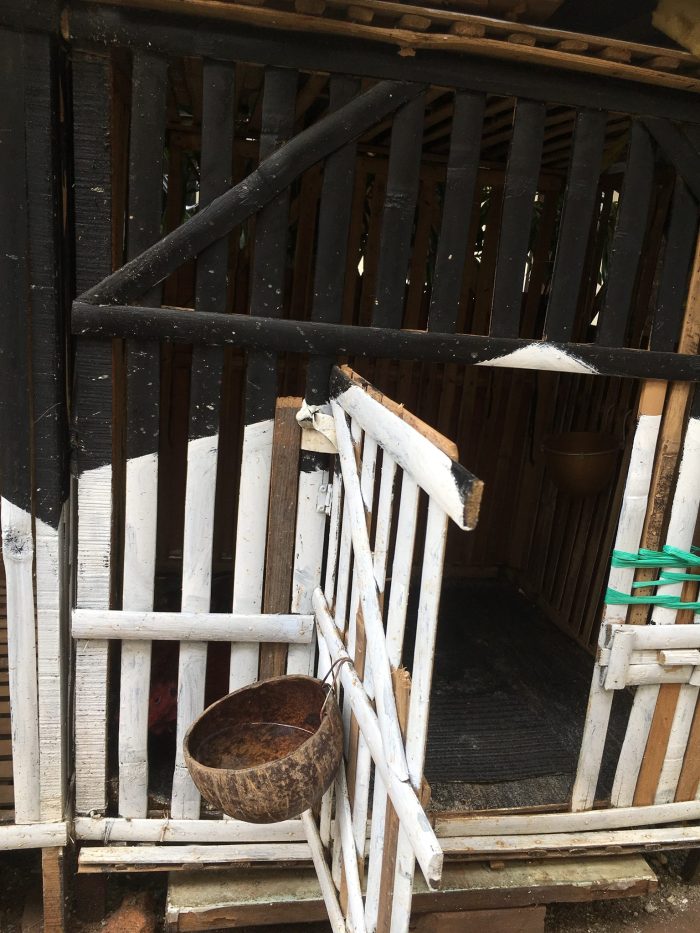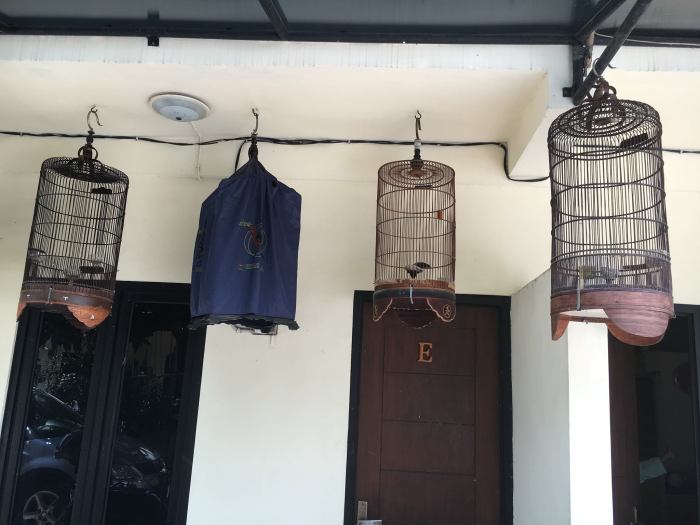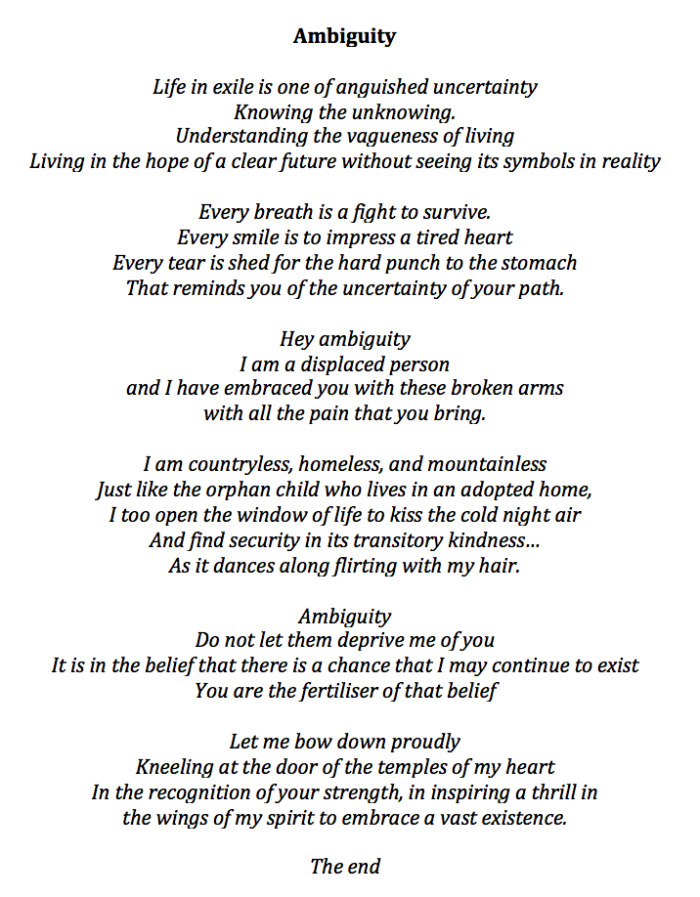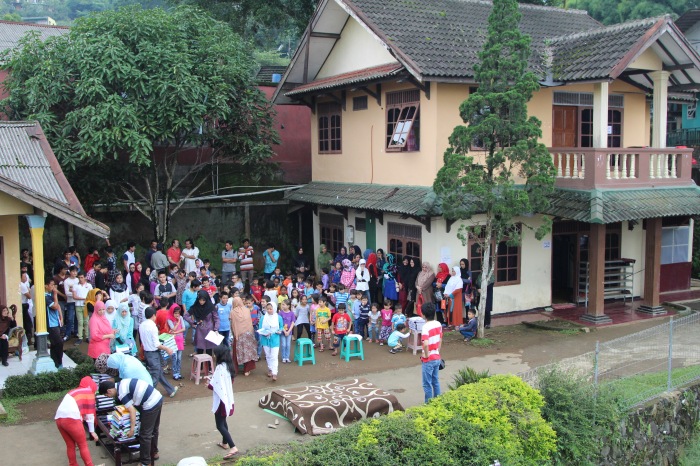Everyone closed their eyes, but we continued to whisper through the night about poetry and art. The flow of our quiet conversation was interrupted from time to time with the loud tak-tak-tak sound of raindrops falling outside. Once in a while, Farhad’s cough too punctuated the raindrops and our whispers.
Farahnaz describes art as her strength. She said it was art that healed her pain, and revived her faith in life. Holding my hand, she continued, “when you are pushed into darkness you are forced to venture out in search of a beam of hope.”
As a child Farahnaz has faced many difficulties. Afghanistan, a chaotic state, has not been able to protect its own children. The children of Afghanistan have grown up with the sound of bombs and guns. They did not have the opportunity to be children. From a small age they were forced to learn how to fight for survival. Instead of pens, guns were placed in their hands. Instead of books, religious scriptures became their late-night story tales. In Afghanistan childhood, ethnic identity and femininity are entombed in the rubble of war.
Hope and skill cannot be broken with the swords of hate. Neither both discriminates against people on the basis of ethnicity or gender. History continues to unfold itself; more identities are broken under the sharp hammer of ethnic targeting. After many years of struggle, Hazaras continue to live in fear within their own homes. Despite it all, they still cling onto their identity as a Hazara.
Broken identities must be mended if we are to live. As Farahnaz says, “they break you, you mend yourself, they break you, and you mend yourself. You have to, or else that is the end for you.” With pain simmering in her throat, she says, “sometimes I ask myself, why should I get emotional? I don’t want to think about others, but then tragic incidents take place where you cannot help but to cry. For example, when the throat of a nine-year-old child is cut open, tears start dripping no matter how cold your heart is. I wish my people lived in an environment where they did not face any challenges. I wish my throat was cut instead of a nine-year-old’s. I wish I could place a stone in my heart to not feel pain. I wish when I sleep, I can sleep with the thought that there is no Taliban.”
Farahnaz fled Afghanistan with her family in 2013. Her memory of Afghanistan is bittersweet. Bitter because like every other child, she feels that her country has drowned her childhood under bloodshed, but sweet because she has many good memories of Kabul. She says, “ I had a lot of friends there. It was different. Our friendship was special. I have a lot of grievances towards my country; despite that, it is my own home, my own country.”
I share similar feelings to her. Although I left Afghanistan when I was little, the little memory that I have of my home has survived within me as I have moved from one land to another, but I did my best to make Australia my home. The opportunity of gaining an education and having a future served as an important filler to an empty space that was carved within me as a child. In Australia I established the purpose of my living, thus why I continue to survive. It is my home now.
In Indonesia refugees live in a state of limbo. They do not know whether they will return home or find a new one. It is uncertain. As stateless people they pursue hope for a bright future through their pain and struggle. Survival has become their identity. Farahnaz says, “we must envisage an idea of a future to work towards, otherwise there is no reason to get up every morning.” Her voice is dim, forcing you to listen carefully to grab her words. She appears vulnerable, but within her vulnerability I found strength. The tone of her voice changes, she says with a magnificent strength, “but you somehow have to pull yourself out of that darkness if you are to survive.”
One day the two of us were standing in Bazaar Arab. Cars were rushing up and down. There was a ripe smell in the air – a mixture of gas, rotten fruits and vegies, and rubbish that flows down on the side of the roads. I said, “It is so busy here.” “Yeah, eventually you get used to it,” Farahnaz says.
In the first year of her stay in Indonesia, Farahnaz faced a lot of difficulties. She says, “I was crying for two months. I missed everything that was familiar to me. There was no school. Time went by very slowly. I hate that year.”
Listening to her attentively, I wanted to know more. I wanted to become familiar with each layer of pain that she was peeling. But the small blue bus came, leaving our conversation hanging. I got on, bending my head as far down as possible, but I still hit my head as I went in. Sitting next to an old lady I opened the window of the bus. I feel suffocated in small and closed areas.
Farahnaz sat opposite me. She continued with our interrupted conversation, “I hated that year, but at the same time I love that year.” I moved the muscles on my face into an expression signaling, “How is that possible?” Understanding she explained, “The difficulties and uncertainty taught me how to appreciate the changes that came into my life, especially the development that occurred in my life this year.”
We were reaching the street where we were supposed to get off. Farahnaz said, “Girri girri,” which means, “Stop stop.” The driver steered the bus to the side and stopped. We got off and started walking in a downhill street, known as Ciburial.
Curious I asked, “What changes occurred in your life?” Farahnaz answered, “I was introduced to CRLC last year. As I entered the school I realized my strength. My brother saw a post on Facebook about a school opening nearby. The next day we enrolled at the school. I started as a student, studying for Eight months. I loved that feeling. I still want to be a student. It is one of my dreams. When I was a student my teachers encouraged me in art. Miss Nagina was my biggest motivator.”
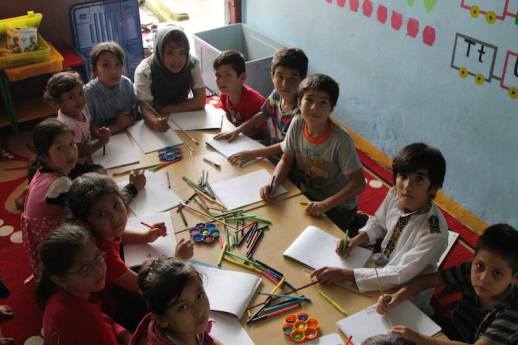
She stops and looks deeply at the curtains, trying to put her vivid memories of Miss Nagina into words. She describes her as a “thoughtful and strong person,” who gave her strength. Her other inspiration is Nagina’s husband Muzafar. She says, “Muzafar always called me by the name ‘artist’. It gave me a good feeling. I was motivated. With their words I saw my future as bright. I began dreaming.”
CRLC made her faith in art stronger. Art became her saviour, giving her a voice to express her anger, sadness and happiness. She says, “When no one listens to you, you are forced to change your language. Art is my language. It gave me the voice that I was denied. Though it is silent, I feel like it is very powerful.”
But Frahanaz acknowledges that behind her love for art lies her experience as a displaced person. She says, “Displacement is a big lesson. It teaches you life. It forces you to adapt to life and raise above difficulties.”
What I see so far in this young artist’s life is a circle of connecting dots. Her childhood, experience of displacement, and art are all connected to each other. Her identity is created out of struggle and creativity, but her identity brought about this struggle.
Farahnaz is a complete person of her own. She says, “I don’t want a man behind me to be recognized as a person. I want to be known as Farahnaz and as an artist.” She mended together the broken pieces of her being with her own little hands. She wove brokenness together with the string of hope and belief.
We were sitting on the upper floor of CRLC with the curtains half open. We had our backs against the cold wall and our legs were stretched in front of us. She said, “Kobra at the beginning no one believed in me and my art but myself. It was later that others started encouraging me. My parents too started to believe in me and the strength of my art.”
With a flicker of tear shining in her eyes, she said, “My father took a picture of my artwork on our wall and put it as the wallpaper of his phone. It makes me feel happy. It encourages me to do more art.” Every time I speak with Farahnaz I get goosebumps; a chill of cold shoots through my veins. Her strength, emotion and thoughts are admirable. My heart starts dancing in joy listening to the rhythm of her enthusiasm as she speaks passionately about her dreams.
The fire of passion that has been lit within her is shining brightly. It is undying. As she says, “I don’t care, what happens. I will continue. If this place has not shattered me, nothing else can.”
Farahnaz makes sure she keeps her options open. She does not restrict herself and future to the hope that she will be accepted as a refugee and resettled in another country. Looking at me with a serious gaze, she says, “even if we are deported. Even if I do not get out of this place, I will not give up on my dreams. I will hold it with the strength and belief that I am holding it now.”
